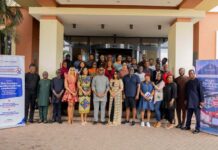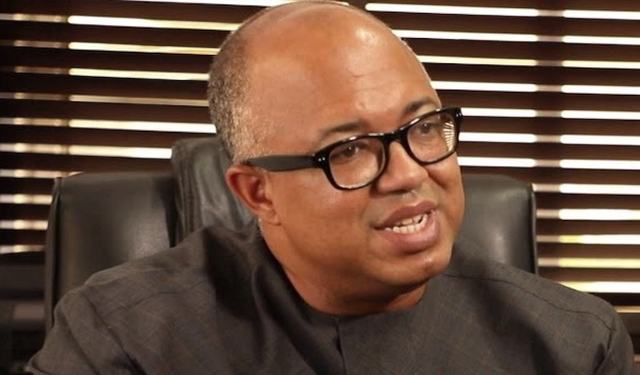As Iranian vice president tests positive for disease
The Nigeria Centre for Disease Control (NCDC) has said that results of the 11 suspected cases of COVID-19 tested in Nigeria are negative.
The director general of the agency, Dr Chikwe Ihekweazu who disclosed this on Thursday reassured Nigerians of their safety against COVID-19, following rumour of a confirmed case in Lagos.
He said the tests were conducted by the NCDC National Reference Laboratory and Virology Laboratory at the Lagos University Teaching Hospital (LUTH).
“Four laboratories in Nigeria have the capacity to test for the coronavirus. These laboratories are within the NCDC laboratory network and are in contact with 24/7. If a new case is confirmed, it will be reported accordingly.
“We are in close communication with the Lagos State Ministry of Health and other states, and will inform the public once there’s a confirmed case in Nigeria,” the director-general said.
Ihekweazu assured Nigerians that the NCDC would continue to closely monitor the outbreak globally.
“We urge Nigerians to disregard rumours and discourage further spread. NCDC will inform the public if a case is reported in Nigeria,” he said.
The NCDC boss said that when a high-risk traveller with symptoms arrive in the country, he/ she would be taken from the airport to an isolation centre and samples would be collected immediately for testing.
“If confirmed, appropriate management will commence but if negative, he/she would still be monitored for 14 days and retested.
“When a high-risk traveller that is not symptomatic comes into the country, the person is advised to stay at home for 14 days and report immediately if he/she develops symptoms.
“Furthermore, his contact details are obtained and an official is attached to him/her to monitor him daily for 14 days to see if he develops symptoms.
“If he develops symptoms within 14 days of arrival in the country, samples would be collected from him for confirmation.
“If confirmed he/she goes into our isolation centre where he would be managed appropriately,” he explained.
Ihekweazu described a high-risk traveller as someone who has had contact with a confirmed COVID-19 case or was travelling from China, particularly Wuhan.
The director general noted that the Chinese authorities had intensified measures to prevent the exportation of COVID-19 such as screening travellers leaving China.
“In Nigeria, the NCDC conducts daily epidemic intelligence gathering to monitor the spread of the outbreak,” he said.
He said that the Government of Nigeria through NCDC is working very hard to be better prepared in the event of a COVID-19 outbreak.
He disclosed that NCDC in collaboration with the National Orientation Agency (NOA) reviewed strategies to work together in the 36 states of the federation and the FCT to ensure that Nigerians are well informed.
Besides, he said NCDC has just concluded a training of case management physicians from the five states with international airports in Nigeria; namely Kano, Enugu, Lagos, Rivers and the Federal Capital Territory.
This is to build their capacity to manage severe respiratory disease cases,” he said.
Furthermore, Ihekweazu said that NCDC had revised the national case definition in line with changes in the epidemiology of the outbreak.
“With the ongoing local transmission in countries outside China, the focus had been expanded to include travellers from other countries.”
He added that with the support of World Health Organisation (WHO), NCDC would carry out a two-day simulation exercise to assess its capacity to respond in the event of an outbreak.
“This process will allow for a review of existing gaps and rapid implementation of interventions to fill these gaps,” he explained.
Ihekweazu said it was important for Nigerians to understand where they fit in national preparedness for infectious diseases such as COVID-19.
He added that health security is a responsibility cut out for all Nigerians, including individuals, healthcare workers, government and the private sector.
The NCDC director general however appealed to Nigerians to stay away from fake news, pointing out that it is causing panic, harm and lead to waste of resources.
Ihekweazu, therefore, advised Nigerians to share only information from verified sources, while the NCDC would continue to keep them informed.
Meanwhile, the coronavirus epidemic in Iran has cost 26 lives, with a vice president becoming the latest top official to be infected as the spread appeared to accelerate.
Health ministry spokesman Kianoush Jahanpour told a news conference that the tally of infections had risen to 245 with 106 more cases confirmed, the highest number for a single day since Iran announced its first infections on February 19.
The Islamic republic has the highest death toll from the virus outside China, where COVID-19 first emerged.
Among the latest coronavirus sufferers is one of Iran’s seven vice presidents, Massoumeh Ebtekar, who oversees women’s affairs.

Ebtekar, a former spokeswoman for students who took 52 Americans hostage at the US embassy in Tehran in 1979, is being treated at home and members of her team have been tested, state news agency IRNA reported.
Mojtaba Zolnour, head of parliament’s national security and foreign affairs committee, also contracted the virus, appearing in a video posted by Fars news agency saying he was in self-quarantine.
The cleric is a deputy for the Shiite holy city of Qom in central Iran where the country’s first cases were detected.
According to media reports, among the deceased in Qom on Thursday was theologian Hadi Khroroshahi, who in 1981 was named Iran’s first ambassador to the Vatican.
The announcement by Zolnour comes two days after another top official, deputy health minister Iraj Harirchi, head of the government’s coronavirus task force, said he too had contracted the virus.
NAN/AFP

























































